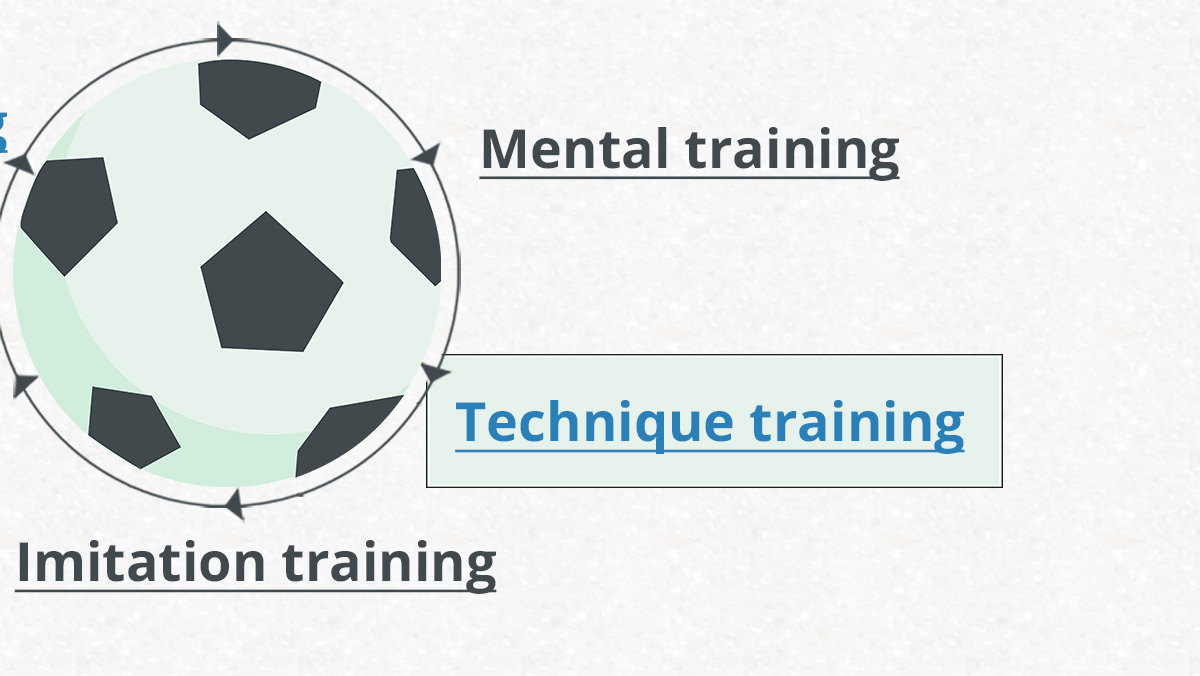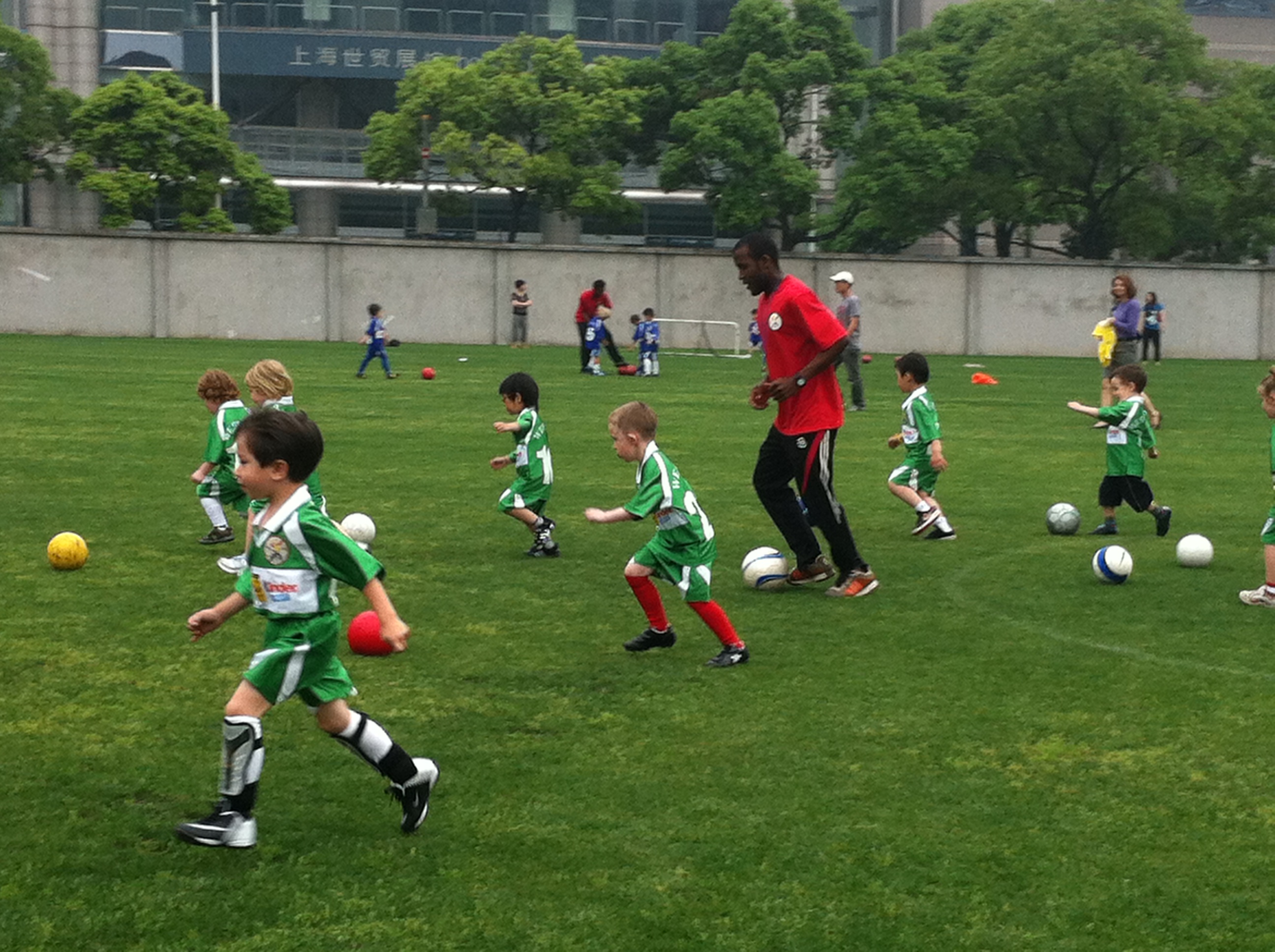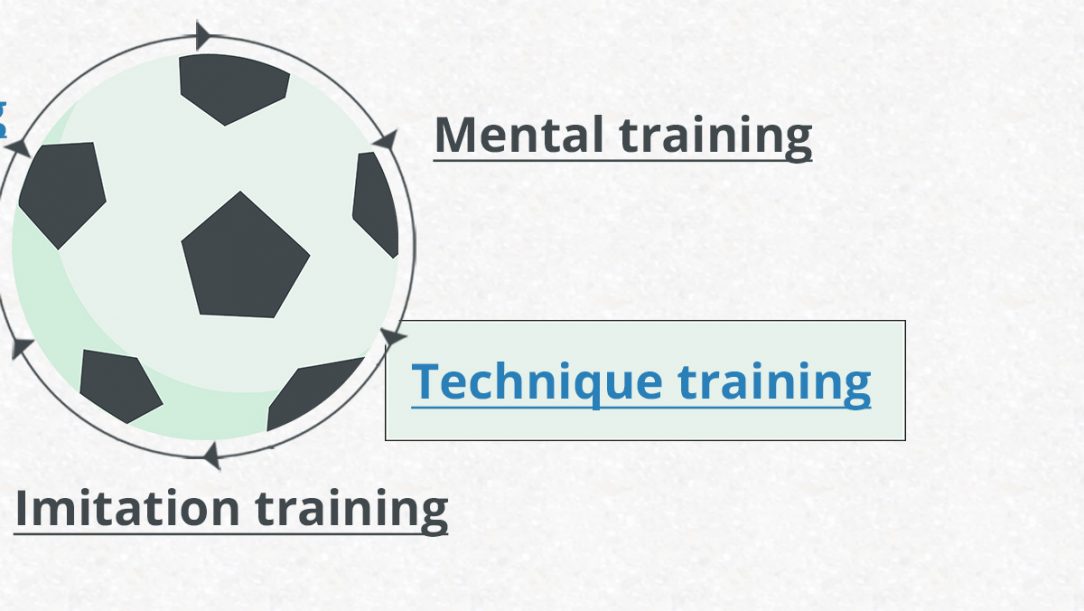
Illustration: Giske Defending.
Technique training is particularly important for young players because it allows you to learn and automate various techniques in an efficient and functional way. While adult players may not invest as much time and focus on technique training, it is still useful in helping you to maintain and develop your skills.
One of the biggest challenges associated with technical training is developing the required range of movement. An experienced footballer who consistently performs well will have a good range of motion and a detailed motion feeling. The inexperienced athlete, however, does not have the same quality of movement. The difference between what inexperienced athletes think they can do and what they can actually do is immense.
Traditionally, technique training focused on how to execute a given skill. There is absolutely nothing wrong with this approach. However, it is important to remember that your performance on match day is a consequence of a number of different factors.
One very important factor that has a huge impact on performance, regardless of the level at which you are playing, is the working conditions; i.e., the conditions in which you will actually execute the techniques you have learned.

Image: Scott & Ealine van der Chijs
One of the biggest challenges associated with technical training is developing the required range of movement.
Working conditions are the first thing you should focus on when you engage in technique training. Many players and coaches make the same mistake: attempting to correct poor techniques that are performed on a flawed foundation. Chances are that you will find this a long and unnecessary process that yields inconsistent results – and a great deal of frustration.
The second most important thing to focus on is the first movement. If your first movement is of a good enough quality, you will be in a much better position to execute the rest of your movements to their full potential.
As a player, I found technical training, both with and without the ball, to be very important. To maintain the most important skills in my role, I felt that it was important to complete some daily repetitions.
One very important factor that has a huge impact on performance, is the working conditions.
As a defender, my top priorities were my footwork, as well as various movement techniques related to my heading skills. I consistently completed drills and exercises on these defence techniques either as part of my warm-up or as an extension of the joint session.
To take my skills to the next level, I introduced an additional session to my training plan that consisted purely of heading and 1v1 practice. One central type of training that was essential during these additional sessions was imitation training.

